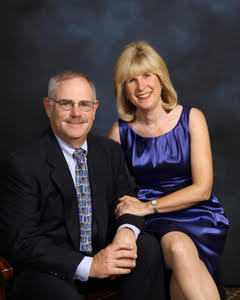
For the Common Good

Mental health. School safety. Housing and homelessness. Immigration. There are no quick fixes or easy answers for such massive societal challenges, but surely research can help pave a path toward solutions.
Believing deeply in that promise, UC Santa Barbara alumni Louise A. Pahl ’77 and Stephen D. Pahl ’77 have donated $1.1 million to their alma mater to deliver on it. Their gift establishes the Pahl Initiative on the Study of Critical Social Issues in UC Santa Barbara’s Division of Social Sciences to fund interdisciplinary research and teaching on major social issues.
“I’m delighted to thank Louise and Stephen for their tremendous gift to fund the Pahl Initiative on the Study of Critical Social Issues,” said Chancellor Henry T. Yang. “They are influential alumni leaders whose volunteer service and philanthropy over nearly three decades has enhanced the education of our brilliant students, especially in the social sciences. This model gift will further strengthen collaborative interdisciplinary research by faculty and students, including undergraduates, to address pressing societal concerns and will have an impact that reaches far beyond our campus.”
And that’s exactly the idea, according to the Pahls, who themselves are products of the social sciences at UC Santa Barbara. Louise earned a degree in sociology; Stephen in business economics and political science.
“We wanted to give this gift in our lifetime so that we can help Dean Charles Hale, UC Santa Barbara faculty, graduate and undergraduate students with meaningful, cutting-edge research for real world solutions,” said Louise Pahl, a trustee of the UC Santa Barbara Foundation who serves on the Bay Area Regional Leadership Committee. “We are looking forward to interacting with the research teams, hearing presentations on their progress and seeing the final results of their work. We feel that this will be a transformative gift for the Division of Social Sciences and will hopefully inspire others to give generously.”
Transformative indeed.
So concurred Hale, the SAGE Sara Miller McCune Dean of Social Sciences at UC Santa Barbara. “Any well-conceived gift to the university builds on what’s there, builds on the principles in place, but also is transformative in allowing us to realize those principles in ways that wouldn’t be possible otherwise,” he said. “The Pahls’ gift is very much in that category.”
Starting with the 2019-2020 academic year, the Pahl Initiative will annually select one new proposal — the awards are competitive — for two years of funding, according to Hale. At the heart of the new endeavor, he said, is a desire for broad impact.
“When I talk about the division and describe what social sciences do, I don’t talk so much in terms of disciplines but about major social issues that need to be understood better — ways in which society needs to change in order to meet our own highest collective aspirations,” Hale said. “It’s constructive, possible, social change for the common good. That usually means a combination of a central problem to be addressed, research-based diagnosis of the problem, and big picture aspirations for possible solutions.”
Stephen Pahl cited the example of rent control.
“From a sociological perspective, many believe that rent control is a positive methodology to maintaining lower income families in the neighborhood and thus promoting a stable community,” said Pahl, senior partner and chairman of the law firm Pahl & McCay. “However, from an economic viewpoint, creating pockets of below-market rents both decreases the availability and quality of the housing stock and promotes those who live in below-market housing to retain their units, even as they advance to higher income levels, thus defeating the social goal promoted.
“This initiative was created to critically study these issues, and provide real potential solutions to resolve these real-world issues,” he added. “The value of the Pahl Initiative is that it blends traditional social science concepts together in an attempt to reach a comprehensive public policy solution.”
Aiming to not only improve understanding of major social issues, but to move the needle toward alleviating them, the initiative will also engage students in those pursuits. Though projects will be proposed and led by faculty, each will support at least one graduate student to conduct doctoral research and provide hands-on research experience to at least one undergraduate student. The intent is that every project results in a research product that is accessible and has broad public impact.
“We want this research to circulate beyond the academy,” Hale said. “Consider immigration, which could very well be an example of a proposal that comes in, and goodness knows we need help in getting beyond the muddle of current immigration policy. The question is how to think beyond critique, and how best to translate scholarly results into some kind of broader impact. And that’s the other sense in which this initiative will be transformative, by pushing us collectively to do more of that kind of thinking. Academics often stop at that key point not because don’t want their research to be broadly disseminated but because we don’t know how. We are very interested in making sure that doesn’t become a barrier.”
Generous donors to the campus since 1990, they have focused their philanthropy on student support, endowing an undergraduate upper division “Making a Difference” award in social sciences and a graduate fellowship that rotates between the departments of political science, economics and sociology — all within the Division of Social Sciences.
“We have received joy in seeing how the Pahl ‘Making a Difference Award’ recipients are continuing to thrive and grow with their careers and pursuing their passions,” Louise Pahl said. “With the Pahl Initiative we are hoping to help solve urgent real-world issues and make the world better for future generations. We hope, too, that it will be a catalyst for additional research in collaboration with other institutions, for additional grants and partnerships, for finding solutions. The world’s the limit.”



